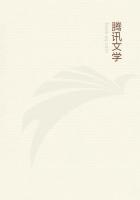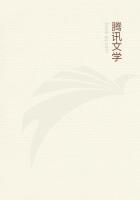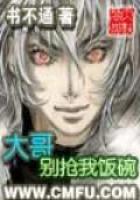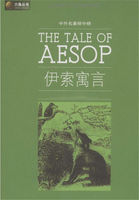Among Snares
All the while Jesus was at Jerusalem during the feast He was shadowed by spies. Day after day new schemes to silence Him were tried. The priests and rulers were watching to entrap Him. They were planning to stop Him by violence. But this was not all. They wanted to humble this Galilean rabbi before the people.
On the first day of His presence at the feast, the rulers had come to Him, demanding by what authority He taught. They wished to divert attention from Him to the question of His right to teach, and thus to their own importance and authority.
"My teaching is not Mine," said Jesus, "but His that sent Me. If any man willeth to do His will, he shall know of the teaching, whether it be of God, or whether I speak from Myself." John 7:16, 17, R. V. The question of these cavilers Jesus met, not by answering the cavil, but by opening up truth vital to the salvation of the soul. The perception and appreciation of truth, He said, depends less upon the mind than upon the heart. Truth must be received into the soul; it claims the homage of the will. If truth could be submitted to the reason alone, pride would be no hindrance in the way of its reception. But it is to be received through the work of grace in the heart; and its reception depends upon the renunciation of every sin that the Spirit of God reveals. Man's advantages for obtaining a knowledge of the truth, however great these may be, will prove of no benefit to him unless the heart is open to receive 456the truth, and there is a conscientious surrender of every habit and practice that is opposed to its principles. To those who thus yield themselves to God, having an honest desire to know and to do His will, the truth is revealed as the power of God for their salvation. These will be able to distinguish between him who speaks for God, and him who speaks merely from himself. The Pharisees had not put their will on the side of God's will. They were not seeking to know the truth, but to find some excuse for evading it; Christ showed that this was why they did not understand His teaching.
He now gave a test by which the true teacher might be distinguished from the deceiver: "He that speaketh from himself seeketh his own glory: but he that seeketh the glory of Him that sent him, the same is true, and no unrighteousness is in him." John 7:18, R. V. He that seeketh his own glory is speaking only from himself. The spirit of self-seeking betrays its origin. But Christ was seeking the glory of God. He spoke the words of God.
This was the evidence of His authority as a teacher of the truth.
Jesus gave the rabbis an evidence of His divinity by showing that He read their hearts. Ever since the healing at Bethesda they had been plotting His death. Thus they were themselves breaking the law which they professed to be defending. "Did not Moses give you the law," He said, "and yet none of you keepeth the law? Why go ye about to kill Me?"Like a swift flash of light these words revealed to the rabbis the pit of ruin into which they were about to plunge. For an instant they were filled with terror. They saw that they were in conflict with Infinite Power. But they would not be warned. In order to maintain their influence with the people, their murderous designs must be concealed. Evading the question of Jesus, they exclaimed, "Thou hast a devil: who goeth about to kill Thee?"They insinuated that the wonderful works of Jesus were instigated by an evil spirit.
To this insinuation Christ gave no heed. He went on to show that His work of healing at Bethesda was in harmony with the Sabbath law, and that it was justified by the interpretation which the Jews themselves put upon the law.
He said, "Moses therefore gave unto you circumcision; . . . and ye on the Sabbath day circumcise a man." According to the law, every child must be circumcised on the eighth day. Should the appointed time fall upon the Sabbath, the rite must then be performed. How much more must it be in harmony with the 457spirit of the law to make a man "every whit whole on the Sabbath day." And He warned them to "judge not according to the appearance, but judge righteous judgment."The rulers were silenced; and many of the people exclaimed, "Is not this He, whom they seek to kill? But, lo, He speaketh boldly, and they say nothing unto Him. Do the rulers know indeed that this is the very Christ?"Many among Christ's hearers who were dwellers at Jerusalem, and who were not ignorant of the plots of the rulers against Him, felt themselves drawn to Him by an irresistible power. The conviction pressed upon them that He was the Son of God. But Satan was ready to suggest doubt; and for this the way was prepared by their own erroneous ideas of the Messiah and His coming. It was generally believed that Christ would be born at Bethlehem, but that after a time He would disappear, and at His second appearance none would know whence He came. There were not a few who held that the Messiah would have no natural relationship to humanity. And because the popular conception of the glory of the Messiah was not met by Jesus of Nazareth, many gave heed to the suggestion, "Howbeit we know this Man whence He is: but when Christ cometh, no man knoweth whence He is."While they were thus wavering between doubt and faith, Jesus took up their thoughts and answered them: "Ye both know Me, and ye know whence I am: and Iam not come of Myself, but He that sent Me is true, whom ye know not." They claimed a knowledge of what the origin of Christ should be, but they were in utter ignorance of it. If they had lived in accordance with the will of God, they would have known His Son when He was manifested to them.
The hearers could not but understand Christ's words. Clearly they were a repetition of the claim He had made in the presence of the Sanhedrin many months before, when He declared Himself the Son of God. As the rulers then tried to compass His death, so now they sought to take Him; but they were prevented by an unseen power, which put a limit to their rage, saying to them, Thus far shalt thou go, and no farther.

